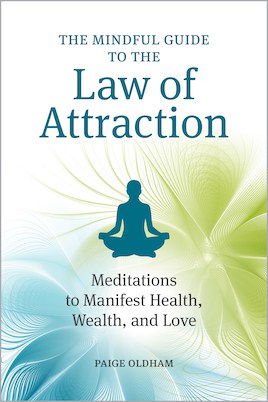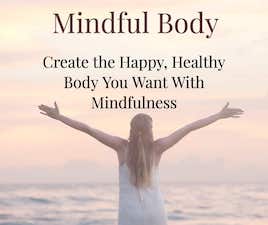It’s amazing that we humans are so programmed to be social creatures when all we ever think about is ourselves (usually).
We expect others to accept and appreciate us as we are and yet we expect them to be the way we want them to be. Not exactly fair.
We expect those close to us to know what makes us happy and do those things on a regular basis.
Whenever we make decisions about how to spend our time, money or energy, we consciously or subconsciously answer the question: “What’s in it for me?”
How happy are you in your relationships with friends, family and your significant other?
I have found a huge correlation between our personal happiness and how much we focus on others.
When we get all wrapped up in our own issues and wonder why someone isn’t beating down the door to help us, we get angry, bitter and resentful. We blame anyone we can find for our problems.
The funny thing is, as soon as we stop focusing on our own issues and focus on how to make others happy, we get happier.
You have to give to get. Reap what you sow.
Take a minute right now to notice how you feel about your closest relationship.
The Good
What are all the things you love about the other person and the dynamics of the relationship?
Have you told the other person these things? If so, how often? If not, make it a point to tell them today. They’ll never hear it enough.
Showing and verbalizing your gratitude for others in your life is a huge win-win. They’re happy that you notice and appreciate them and their happiness makes you happy. They keep doing the things that you like because you took the time to show your thanks.
The Bad
What are all the things – large and small – that irritate you about the other person or the relationship?
If you just feel a general negative feeling, define what is creating that feeling. What does the other person do that drives you crazy?
If that person did the same things around someone else, would the other person interpret it as irritating?
You are the backdrop against which you interpret other people’s actions. Different backdrop, different interpretation. Something that you find irritating might be fun and quirky to someone else.
The Other Person
Rather than thinking purely about yourself and how you see the other person, put yourself in their shoes.
Consider their background and life experiences. Why do you think they do and think the way they do?
Consider your own background. Why do you interpret their actions the way you do?
How we interpret their thoughts and actions is our choice. We can choose to love and accept them for who they are or we can allow things to bother us.
Honest acceptance is a major key to happiness. Not resignation but acceptance. It’s not always easy but, like mindfulness, it’s a practice that must be practiced regularly for maximum benefit.
My Story
My father used to drive me crazy with his barrage of judgmental comments. It was as if nothing I did was right or good enough. My interpretation was that he wanted me to still be his little girl who had to do things his way as long as I lived under his roof. But I was over 30 years old and I didn’t live under his roof and hadn’t for a long time.
I would let every little thing he said get under my skin and make me angry. I wasted a lot of time talking about this with my husband and I wasted a lot of energy on the whole ordeal.
Then I started to look at things from his point of view. He grew up in the deep South with a tyrannical mother and quiet father, neither of whom openly showed their love for him. His mother constantly picked him apart. In a misguided effort to gain attention, he became a bully. To “fix” this problem, his parents sent him off to military school which only exacerbated the problem.
I started to see my large (he’s 6’8”), overbearing bully of a father as a sad and angry 12 year old boy who lashes out at the world because he’s not getting the love and attention he deserves from his parents. He makes himself feel better by tearing other people down and beating them up.
And none of this has anything to do with me.
He’s just doing what he has always done. I noticed that he does it to almost everyone he’s close to.
When I asked him to notice it and consider how it affects others, he felt threatened and got angry and defensive. Questioning it is a threat to his very big ego.
Once I started seeing him in this way (as a 12 year old little boy doing the only thing he knew how), it became much easier for me to accept him for who he is. He has no intention to change and I stopped trying to change him.
Given the negativity that exudes from him, I’ve made the difficult choice to significantly limit my exposure to him. It has taken some time but it appears that he has finally accepted this. He used to complain regularly about how I never call him, but that has lessened.
We have light conversations once every month or two. We make no point in visiting each other (he lives half way across the country from me). And I’m finally OK with all that.
I’ve realized that I’m much happier accepting him for who and what he is. I have tried many different ways of improving our relationship that all fell flat. I feel like I’ve done all I can. It’s a two-way street. He has to want to change too, but I’ve discovered that change is extremely threatening for him. So I let it go.
Ask for What You Want
If you’re not getting what you want out of your relationships, I have two questions for you:
- Do you really know what you want?
- Have you told the other person what you want in enough detail that they can deliver?
You may be thinking: “If they loved me, they would know. If they cared for me, they would do what I want.”
Man or woman, none of us are mind readers. You can’t expect someone else to always know everything about you if you don’t tell them. We all change and we can’t expect others to fully comprehend our changes.
Take responsibility for your own happiness in your relationships. If you leave it up to the other person, as well-intentioned they may be, you’ll end up disappointed.
Simple Steps
- Tell those close to you what you love and appreciate about them.
- Take some time to examine aspects of your relationships you’re not happy with. How can you see things from the other person’s perspective? How do you contribute to the issues?
- Tell those close to you what you want in a loving way and how they can make you happy. Follow up by asking them what you can do to increase their happiness. Help them give you what you want.
You get what you give. What are you giving?
Create the life you want: Combine the law of attraction with mindfulness
The law of attraction suggests that our positive or negative thoughts bring about positive or negative experiences. My latest book, The Mindful Guide to Law of Attraction, pairs that belief with the powerful practices of mindfulness. Through intentional breathing, writing, and engaging, you’ll hone a method for manifesting health, wealth, and love―the elements of happiness.
Let the law of attraction work for you by adopting its basic steps of identifying and visualizing the things you desire. Then use 45 practical meditation techniques included in the book to achieve awareness. By concentrating your positive energy on obtaining your wants, you’ll give yourself permission to receive them.
To your happiness! ~Paige

You can find this book at Amazon, Barnes & Noble, Books-A-Million, and Indigo.






 The Mindful Living Guide
The Mindful Living Guide




Amazing post. It’s really important to look a difficult situation from new point of view for the solution. But it also really important to keep our mind calm and healthy. The one should practice mindfulness and mediation. It’s really important to control your mind and thoughts. Then only a person can be happy. One can also use https://jinglow.com/ app for positive affirmations.
The most important thing is not how you were raised or your parents. There’s always a moment, a point where self can consciously decide how to react or respond to every situation or with every person. Two brothers with the same parents may react completely differently to the same scolding or the same bad treatment, and in turn themselves when parenting can repeat the same patterns from their parents or because of this, because they do not liked how they were treated, overcome, be aware of this and be better parents and have a much better relationship with their own children.
I totally get this Paige. Thank you so much for sharing your story and pointing out what’s so true in all areas of our life, we don’t get to change other people, but as we are willing to shift our perspective, in your case seeing your Dad as that unloved and unhappy child, our experiences begin to change.
You’ve told the story of how our points of view can keep us in chains…or not.
Great post.
Thank you Elle! I used to experience so much anger and disappointment until I realized that I could change the way I looked at and thought about other people and my relationships with them. It was quite a freeing experience.
It comes back the old question: Do I want to be right or happy?
Paige, thank you for this post. It came at just the right time for me.
I truly struggle at times to accept someone I love as they are, rather than try and change them.It is so easy to say, but so hard to do at times. I like the concept of it taking practice.
I liked your distinction between acceptance and resignation, this truly makes a difference.
Taking the responsibility for my own happiness and not expecting the other person to mind read for me is the key.
Julie
I’m so happy this was helpful for you Julie! It took me years and many power struggles to finally figure it out.
As my husband and I are raising our kids, reflecting on our own childhoods and how we want to be better parents, the biggest lesson we keep coming back to is acceptance. Neither of us feel that we were accepted for who we were by our parents. Our parents certainly reflected their own experiences of not being accepted to us rather than changing that cycle. When we’re brought up like this, it’s hard not to practice what our parents preached to us.
Even though they’re kids, our children deserve to be respected and accepted for who they are, not who my husband and I (or anyone else) think they should be. We may not agree with all their choices but we do accept them.
Hopefully they’ll have an easier time in life knowing how to accept others as well as themselves for who they are.
Hi Paige,
On the eve of my 16th wedding anniversary I couldn’t have read a more relevant post. Thanks for sharing your wisdom and insight. One of the things that has been key to our relationship has been our ability to manage 3 interconnecting circles…..our life with each other, our life as a family (including our 2 boys) and our lives as individuals. It hasn’t always been easy but knowing when to share those conversations – the good as well as the bad does only strengthen your relationship.
I also appreciate you sharing the story of your father as I too have a similar one. I ultimately made the choice to not continue a relationship with my Dad. When I had my first son I had so many questions about fatherhood. When reflecting back on my own life and in an effort to gain wisdom on the best way for me to be a Dad I confronted my father in respect to some of the decisions he made when being a parent to me. I just couldn’t understand how a father could put his son into some of the positions he put me into. He couldn’t see my point of view and like you at a point I just let go.
Thanks for entering my day today and I look forward to connecting soon.
Best,
Alan
Thank you so much Alan and a big congratulations on your 16th anniversary! That’s quite an accomplishment!
In my first marriage I was under the delusion that a good marriage meant always being happy, never arguing. That belief on both of our parts meant an early divorce. In my current marriage, we’ve both learned that marriage is an educational process. It’s like the Universe put us together to push each other’s buttons in every way possible in order to learn and grow from the process. And, boy have we grown!
Like you, we’ve both used our perceptions of our relationships with our parents to guide how we want to parent. Again, lots more learning, growing and evolving. Kids have so much to teach us!
Looking forward to connecting with you too!
Oh hell yes, Paige! I loved this post!! We determine our own reality and that includes how we experience others. Bravo on shifting your perspective on your dad – our relatives and especially our parents are the hardest for us to do that with, but accomplishing a shift there will bring huge healing.
You did such an awesome job explaining this concept! And thanks for sharing your own story, as well.
Huge hugs!!
Melody
Thank you so much Melody!
I figure the more I share about my own experiences, the more people can see that the information I write is real and works.
I have to say, I have learned so much about the LOA from your site! There are so many concepts that seem obvious but I couldn’t quite grasp (as was obvious by my lack of results). You have a way of making it all so easy to understand. I do the V8 head slap after reading your articles because you make the lightbulb in my head finally turn on. Thank you!!!
We tend to get close to people who accept us the way we are. It is not as though we even need to change in many ways. I have friends who are totally different from me – but there’s something that cements our relationship and that makes it all worthwhile. Both sides must be doing fine, since I’ve known a majority of my friends for decades. The moment the fault-finding starts for any relationship – that’s when the trouble begins. No one has to be perfect, but picking nits with everything definitely does not help. So important to clean our own houses before pointing fingers at others’.
My favorite uncle (mom’s bro) tends to keep pointing out even minor issues about me, while he tolerates, and sometimes also praises the very same thing with my cousins. Years ago, I used to feel upset about it, but as I grew up, I stopped caring. It did not seem fair on his part – and it almost looked like he got some pleasure out of making me feel bad. I realized it wasn’t worth fretting over and moved on. I am fond of my uncle…but this is one trait with him that makes him a real…um….traitor. 🙂
Loved the post, Paige. Very valid points.
You totally get the acceptance concept Vidya. It took me a long time but I finally figured it out and it’s what saved my marriage and kept me from completely alienating my parents.
It sounds like your uncle is using his children to create part of his own self-image and has some insecurities. To make himself feel better, he tears others down. My father is a lot like that. Nothing you can do about it but say to yourself, “Wow. That person really has some issues.” and move on. It has nothing to do with you and everything to do with them. Good for you for moving on. Your own happiness is what’s important.
Thank you so much Vidya!
Hi Paige,
What works best for me in relationships is the ability to be my whole self (warts and all). I don’t bother with relationships where I can’t express who I am and ones that seem to be controlling in nature.
Justin,
You’re right on! There’s not much of a point in developing a relationship if you can’t completely be yourself. Trying to be someone or something else takes too much of our valuable energy.
I’ve spent much of my life in controlling relationships that were constantly in a troubled state. As soon as everyone dropped the need to control, the underlying beauty of the relationship finally flourished.
Thanks!